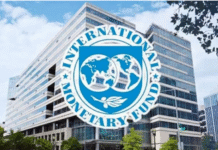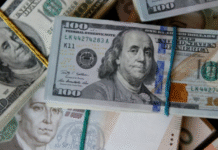Interest rate on deposits slid below the 5-percent mark and well under the inflation rate, compounding the woes of savers who have already been hit by a large hike in excise duty on their balances.
In April, weighted average deposit rate stood at 4.97 percent, down from 5.77 percent a year ago, according to Bangladesh Bank.
However, deposits saw 12.21 percent year-on-year growth in March, higher than 8.28 percent registered in March last year.
Bankers attributed the deposit growth to the excess liquidity in banks. BB Governor Fazle Kabir in a post-budget briefing said they mopped up Tk 5,000 crore on average every day from banks due to excess liquidity.
“Depositors still trust banks to keep their money safe,” said Mohammed Nurul Amin, managing director of Meghna Bank.
So much that the 67 percent hike in excise duty on account balances of more than Tk 10 lakh from next fiscal year is unlikely to deter savers to parking their funds with banks.
The higher excise duty will only cause sufferings for the middle-class, who depend on returns from their savings for sustenance, said a senior executive of a private bank.
The private banks saw a 14.12 percent year-on-year growth in deposits in March this year, which was 8.19 percent a year earlier.
As of March, the total deposits in the banking sector stood at Tk 913,834 crore, of which Tk 16,705 crore was surplus, according to the central bank data.
In fiscal 2017-18, accounts with balance of up to Tk 1 lakh will remain exempt from excise duty.
An excise duty of Tk 800 will be imposed on debit or credit balance exceeding Tk 1 lakh but less than Tk 10 lakh, up from Tk 500 at present.
For balance between Tk 10 lakh and Tk 1 crore, the excise duty would be Tk 2,500, about 67 percent higher than the current rate.
Accounts with balance between Tk 1 crore and Tk 5 crore will be hit with Tk 12,000 excise duty. It is now Tk 7,500.
And for balance exceeding Tk 5 crore, Tk 25,000 will be slapped on as excise duty, up from Tk 15,000 now.
As of December 2016, about 83 lakh accounts stand to be affected by the proposed increase in excise duty form next fiscal year.
Source: New Age









